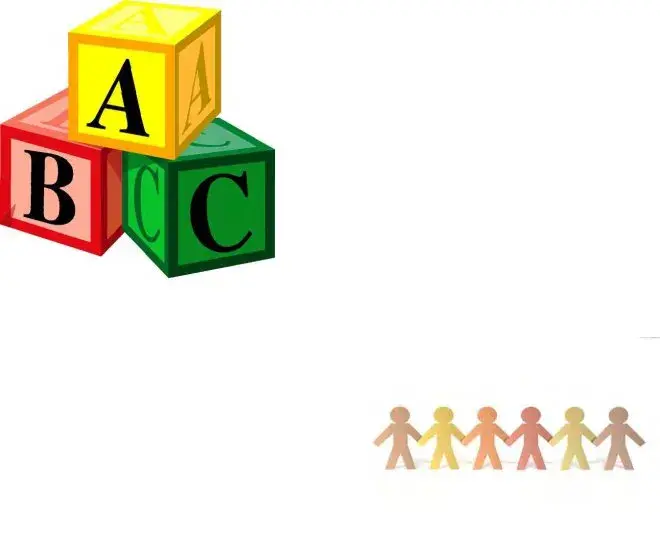Are you considering filing for divorce in Arizona? If so, you'll need to familiarize yourself with the state's divorce petition form. This document is used to initiate a divorce proceeding and must be filed with the court. In this article, we'll provide an overview of the Arizona divorce petition form and explain how to complete it. We'll also provide some tips on how to make the process as smooth as possible. So if you're ready to launch your own divorce case, keep reading!
| Question | Answer |
|---|---|
| Form Name | Arizona Divorce Petition Form |
| Form Length | 55 pages |
| Fillable? | No |
| Fillable fields | 0 |
| Avg. time to fill out | 13 min 45 sec |
| Other names | divorce in pima county, az divorce packet form printable, az divorce petition, arizona petition form |

DIVORCE
WITH CHILDREN
PETITION
Packet #2
These forms must not be used to engage in the unauthorized practice of law. The court is not responsible for (1) actions taken by the users of these forms or
(2) the users’ reliance upon the instructions or information provided.
DWC Petition Updated March 2017

Are you the victim of domestic violence?
Important! Read this first…
Unfortunately, domestic violence may occur in any marriage and may be
directed against you personally or against your children.
You are a domestic violence victim if you or your children have experienced any of the
following:
!Physical acts like hitting, slapping, pushing or kicking
!Threats of physical violence by phone or in person
!Abusive words and/or behavior used to control you or put you in any kind of danger
!Being followed around throughout the day or having your interaction with others monitored
!Being forbidden to leave your house or being taken against your will and kept at any other location
!Having your spouse enter the house against your will, behave in a disorderly manner and/or damage property
!Conduct that involves disobeying court orders, including interfering with your parenting time
!You DO NOT need to have been seen at a hospital or at a doctor’s office.
!Your spouse DOES NOT need to have been convicted of domestic violence or assault.
You can get an IMMEDIATE Order of Protection to keep your spouse away from you and your children by obtaining a Petition for Order of Protection from the Clerk of the Court on the first floor of the Pima County Superior Court, Room 131A. You may submit the Petition to any of the following court locations between the hours of 8 a.m. and 4:30 p.m.
Tucson City Court |
Pima County Juvenile Court Center |
103 E. Alameda St. |
2225 E. Ajo Way |
1
DWC Petition Updated March 2017

Pima County Consolidated Justice Court |
Pima Superior Court Clerk’s Office |
240 N. Stone Avenue |
110 W. Congress, 1st floor |
To get an Order of Protection after hours or on weekends or holidays, call:
Tucson Police Department |
Pima County Sheriff’s Department |
In case of emergency, call 911.
If you are in a protected location or shelter
DO NOT put your address or phone number on the court documents!
If possible, get a P.O. Box or use another valid mailing address on the papers, and tell the Clerk of the Court about your existing Order of Protection and case number.
You can ask for a Protected Address with the Request for a Protected Address form. Both the Request for a Protected Address and Order for a Protected Address are included at the end of this packet.
You can find more information about Orders of Protection at the Clerk of Court located on the first floor of Pima County Superior Court (110 West Congress Street, Tucson Arizona 85701). They are open from 8:00 am to 5:00 pm Monday through Friday (except holidays). For more information, call (520)
2
DWC Petition Updated March 2017

General Information &
Frequently Asked Questions
This packet contains general information, instructions and court forms for you to complete and file with the court.
What is a Petition for?
A petition is a written, legal request for a divorce.
What do “Petitioner” and “Respondent” mean?
Because you are the one asking and filing for divorce, you are called the PETITIONER. Your spouse is the RESPONDENT on all your divorce documents.
Are there any requirements for filing for divorce in Arizona?
In order to file for a divorce in Arizona, you or your spouse must have lived in Arizona for at least 90 days before you file. If you are in the military, then you have to have been stationed in Arizona for at least 90 days.
If you have not lived in Arizona for at least 90 days DO NOT FILE. You have to wait until you have lived here at least 90 days.
If the judge needs to decide on matters about children, like parenting time or child support, then Arizona must be your children’s home state (primary place of residence). This means your children must have lived in Arizona for at least 6 months before you file.
If you are not sure if Arizona is the home state (primary place of residence) for your children, talk to a lawyer before filing for divorce.
Arizona is a
3
DWC Petition Updated March 2017

This symbol is a warning. It can mean a few different things:
•The topic can be confusing and you may need to ask a lawyer for help
•You may need to make sure something is done
Whenever you see this symbol, make sure you read the information carefully and understand it fully.
Should I see a lawyer for help?
Court cases can be very complicated, and even if you are representing yourself you should see a lawyer for legal advice as to how the law applies to you, and what is best in your particular situation. This might save you time, money and trips to court, and help you to avoid serious mistakes.
There are lawyers who will help you. They will only charge you for giving you the help you need, and you can complete the court papers on your own or ask the lawyer for help with your papers. For more information, call the
Where is the
The
What is “Sensitive Data” and why do I need to fill out a separate form?
Sensitive data, or sensitive information, is information that you might not want other people to see. Sensitive data includes your social security number, bank account number, credit card number, and other financial account numbers.
Court documents, for the most part, can be seen by anyone. If you need to include any of the types of information listed above in your Petition, you should write “SEE CONFIDENTIAL SENSITIVE DATA FORM” where you would normally put that information. Then you need to fill out the Confidential Sensitive Data Form, which is included at the end of this packet. This is where you will write the actual sensitive information.
4
DWC Petition Updated March 2017

This is important because the “Confidential Sensitive Data Form” will not be seen by the public.
If you ever need to give the court new information, then you should file an updated sensitive data form. Include all other sensitive data forms that you have already given the court, plus any new sensitive information that you need to tell the court.
Anyone who includes “sensitive data” in documents filed with the court, other than on a Confidential Sensitive Data Form, does so at their own risk.
5
DWC Petition Updated March 2017

How Do I get a Divorce?
There are a few steps you have to take in order to get a divorce.
Step 1. File your divorce papers
To file a Petition for Divorce, use the forms and instructions in this packet. This first set of paperwork is the beginning of the divorce process.
Step 2. Serve the divorce paperwork
A copy of your petition must be officially served on your spouse. This tells your spouse that you are asking for a divorce and gives your spouse an opportunity to file a Response to your petition. This step is very important! There are specific directions for how to officially serve the Petition on your spouse. Forms and instructions are in Packet #10 Service of Papers.
Step 3. Request a default decision OR go forward with a divorce trial
If your spouse does not file a Response to your Petition through the court within the time limits of the Summons (see Packet #10 Service on the Other Party), the divorce can proceed as a Default. A Default means that the court will order everything legally reasonable you asked for in your Petition. Before your divorce can proceed as a Default, you must file an application for Default. Forms and instructions are in Packet #11 Obtaining a Default Decree.
If your spouse filed a Response and you cannot reach an agreement, you will need to have a divorce trial. Forms and instruction are in Packet #14 Trial Preparation. If this is the case, you should seek the advice of a lawyer.
Step 4. Get a final decision
To make your divorce final, you have to fill out a Decree to be signed by the judicial officer. The Decree is the final order from the court granting you the divorce and deciding the other issues related to the divorce. Forms and instructions are in Packet #4 Divorce with Children Decree.
6
DWC Petition Updated March 2017

What about my children?
Because your divorce involves minor children, you and your spouse are required to attend the Domestic Relations Education on Children’s Issues Course (Parent Education Class). You must complete this class within the first 45 days after your Divorce Petition was served on you. You are not responsible for your spouse’s attendance, but no request regarding Legal
Mediation. There is a fee for this class. You can register for the course at www.sc.pima.gov/fccc/parented or by calling
What if my spouse and I
disagree about the children?
If you and your spouse cannot agree on a plan for how each of you will spend time with the children or make legal decisions for them, you will eventually be required to attend Conciliation Court Mediation
for help in writing a Parenting Plan for your minor children (See Packet #9 Legal Decision- Making and Parenting Time). You will both meet with a neutral third party to get help in solving your problems. Mediation does not deal with child support (see Packet #8 Child Support), spousal maintenance (alimony), or division of property or debts. You can ask for mediation at any time with Packet #15 Mediation.
Mediation is offered as a free service only through the Conciliation Court.
7
DWC Petition Updated March 2017

!
How much will all this cost?
FEES IN GENERAL
As of May 2014, the cost to file:
•Packet #2 Divorce with Children Petition: $263
•Packet #3 Divorce with Children Response: $194
•Packet #5 Divorce without Children Petition $263
•Packet #6 Divorce without Children Response $194
•Packet #18 Paternity $258
•Packet #19 Paternity Response $189
•Petitions for
OTHER EXPENSES INCLUDE:
•The mandatory Parent Education Class fee: $45 (details on page 7)
•Legal record copies through the Clerk of the Court, per page: $0.50
•General use copies made in the library, per page: $0.15
NOTE: You have to pay fees to file documents for your divorce. If you can’t afford the court fees or other costs for a divorce, you may be able to get a deferral or waiver.
HOW TO GET A DEFERRAL OR WAIVER
You can apply for a full waiver or deferral of the fees if you cannot pay.
•A deferral means that you do not have to pay any fees at the beginning of your case, but you will be expected to pay on a predetermined schedule.
•A waiver means that you do not have to pay the fees at all.
•Not everybody who requests a deferral or waiver receives one.
•You file for a deferral or waiver at the same time you file your petition or response.
For more information see Packet #12 Deferral/Waiver of Fees & Costs
8
DWC Petition Updated March 2017

Volunteer Lawyers Program
Domestic Relations Clinic
Pima County Superior Court has a program through which free assistance is given to people representing themselves in a family law matter.
At the clinic, someone will review your Decrees, Child Support Orders, and Income Withholding Orders to help ensure these documents are complete and legally correct.
Making use of the Clinic is in your best interest. The judicial officer will not sign any documents that are incorrect or incomplete. In such cases, you will have to leave, correct your documents, and then schedule another hearing.
To schedule an appointment call the Pima County Law Library at
There are lawyers who will help you help yourself
This means that they will only charge for the help you need, and you can complete the court papers on your own.
Court cases can be quite complicated, and talking to a lawyer can help you avoid serious mistakes and save you time, money and trips to the court.
For more information, call the
We encourage you to also make use of the additional resources following this
page for more information on finding a lawyer.
9
DWC Petition Updated March 2017